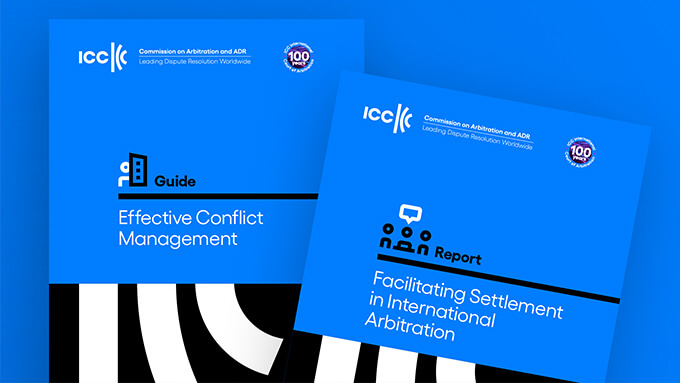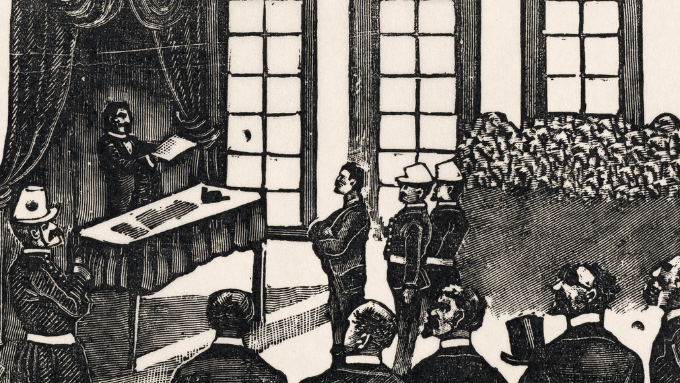Annulment of the Court of Arbitration for Sport Awards
The Court of Arbitration for Sport (“CAS”), known as the “highest” court of sports-related dispute resolutions, is an arbitration court independent of any sporting organization that serves to facilitate the settlement of disputes through arbitration or mediation, with rules adapted to the specific needs of the sporting world. Since the mission of CAS is to resolve disputes that are directly or indirectly related to sports, arbitral awards rendered by the CAS have a power of execution as strong as a state court. As a matter of fact, pursuant to the procedural rules of the Code of Sports-related Arbitration (“CAS Code”) an arbitral award rendered by CAS is final and binding for the parties as of the date of notification of the award to the parties[1].
Legal remedies against arbitral awards rendered by CAS are rather restricted. One legal remedy is to file an appeal against the awards rendered by CAS as a first instance court through the ordinary arbitral procedure[2] - once again before CAS. However, such appeal can only be filed if it is clearly provided by the rules of the related federation or sports organization[3].
Apart from this, judicial recourse against all the arbitral awards rendered by CAS is possible through taking an action and requesting the annulment of the CAS award from the Swiss Federal Tribunal (“SFT”), which is the highest judicial authority in Switzerland.
Admissibility of the Action for Annulment
While examining an action for annulment of international awards, SFT examines (i) whether it has jurisdiction to hear the request of annulment (ii) whether the award that is requested to be annulled is a challengeable decision, (iii) whether the party who is requesting the annulment has standing to appeal and, lastly, (iv) whether the request of the annulment was submitted within the time limits[4].
Jurisdiction of SFT
Pursuant to Article R28 of the CAS Code, the seat of arbitration (lex arbitri) is Lausanne, Switzerland in CAS proceedings. The seat of arbitration never changes, even if the hearings are conducted, and/or the final decision is rendered, outside of Switzerland. In fact, in CAS arbitrations, wherever the proceedings are conducted, all CAS proceedings are subject to the same procedure, and this procedure cannot be changed regardless of the country in which the parties are located[5]. Since the seat of arbitration is determined as Switzerland for these reasons, the legal remedies that can be applied against CAS awards and competent authorities in this matter are determined according to Swiss law[6]. In other words, since the appellate authority one can apply to seeking an appeal of the arbitral awards rendered by CAS is determined by Swiss Law, pursuant to the Swiss Private International Law Act (PILA)[7], an action for annulment must be filed with the SFT against the arbitral awards rendered by CAS.
Challengeable Awards
As a rule, only the awards that are final and end the arbitral proceedings are challengeable before SFT, whilst interim decisions, which do not finalize the arbitral proceedings, are not. However, as an exception, an action for annulment can be filed before the SFT against the interim decisions regarding the (i) jurisdiction of the Panel and (ii) challenge of the Panel. The reasoning for this is that in such cases, the Panel finalizes the proceedings by stepping back from the proceedings.
In this regard, firstly, an action for annulment can be filed against CAS awards that concern dismissal of the case. In addition to the awards rendered by CAS arbitrators regarding the merits of the dismissal, in light of the above-mentioned explanations, procedural awards that finalize the proceedings may also be subject to an action for annulment. In so far as an award regarding the dismissal of a case rendered by CAS arbitrators due to non-payment of the expenses by the claimant may also be subject to an action for annulment[8].
Persons Who May Request Annulment of Award
In accordance with Article 76 of the Supreme Court Act (“SCA”), persons who are parties of the arbitral proceedings, or who are deprived of their ability to act as a party, and who are exclusively affected by the award that is subject to the annulment, and has an interest in the amendment/annulment of the award, can file an action for annulment.
In this respect, the right to file an action for annulment is primarily given to the persons who are parties to arbitration proceedings; thus, third parties who are not party to the proceedings are prevented from intervening in the case at a later stage, and the possibility of changing the course of action would be prevented. However, the persons who are not parties of the proceeding, but who have a legal interest in the annulment or amendment of the award, are not prevented from filing an action, thereby protected from experiencing a loss of rights. In addition, the party filing an action for annulment must set out their legal interest in filing the action[9].
Time Limit
The CAS Code stipulates that the awards notified by the CAS Court Office are definite, and in accordance with Swiss law, an application challenging the awards is available in certain circumstances, within 30 days from the date of notification of the award by mail or courier[10]. In this respect, in accordance with Article 100 of the SCA, the action for annulment against CAS awards can be filed within 30 days. The exceptional and limited situations that interrupt or stop the said 30-day period are also listed in related articles of the SCA.
Waiver from the Right to File an Action for Annulment
One of the most controversial issues related to the annulment of CAS awards is that the parties waive their rights to apply to the SFT, in advance. In accordance with the CAS Code, if the place of settlement, the habitual residence, or the workplace of the parties is outside of Switzerland, the parties may waive their rights to appeal the award, through a clear provision in the arbitration agreement concluded between them, or by a written agreement to be made at a later date[11]. This provision led to a discussion in the doctrine that since the current version of the provision creates a difference to athletes according to whether they reside in Switzerland or not, in a case in which one of the parties is a federation or a sporting body that has its head office in Switzerland. If the sports federations with their head offices in Switzerland provide for a waiver of the right to file an action for annulment against the CAS awards in their statutes and regulations, by accepting these rules, professional athletes in Switzerland automatically waive their rights to appeal, as a precondition in order to engage in their sporting activities.
The provisions of R46 (3) and R59 (4) of the CAS Code, which are controversial and cause differences to athletes, are actually the solidified version of Article 192 of the PILA[12]. However, despite the existence of this provision, in the well-known case of Guilermo Cañas vs. ATP Tour, which came before the Tribunal in 2007[13], the SFT stated and declared the following: The right to appeal cannot be waived in an indirect manner, and the parties must express their common intentions to exclude the appeal, unquestionably, and Article 192 of PILA is not a provision to be applied in sporting disputes, historically, and an athlete who waives his right to appeal against future decisions, generally, does not do this on his own free will and, therefore, Article 192 of the PILA should not be used as a defense against an athlete in principle. For these grounds, the SFT decided that the waiver of the athlete is not lawful and, therefore, there was no reason for the appeal to be rejected[14].
Grounds for Annulment
Pursuant to Article 190/2 of the PILA, an action for annulment may be filed against the arbitral awards of the CAS before the SFT using a limited number of grounds, as follows:
- Wrongful appointment of sole arbitrator or improper constitution of panel (subparagraph a),
- Arbitral tribunal’s incorrect decision as to jurisdiction (subparagraph b),
- Arbitral Tribunal’s decision on matters exceeding the requests submitted to it, or failure of the Arbitral Tribunal to render a decision as to one of the claims of the Appellant (subparagraph c),
- Breach of the principle of equal treatment or right to be heard of the parties (subparagraph d),
- Breach of Swiss public order (subparagraph e).
The above-mentioned grounds are numerus clausus, and it is not possible to file an action for annulment for any reason other than as stated above. It is not even possible to apply to the SFT for annulment for wrongful application of law, unless the claimant proves that there has been a violation of the general rules of good faith[15]. In addition, an application for annulment that is based on the provisions of the European Convention on Human Rights is not acceptable by the SFT[16].
As well, even though the existence of one or several grounds for annulment stated in Article 190/2 of the PILA is sufficient for application against CAS awards before the SFT, it generally takes a pro-arbitration stance, and it may accept the applicant"s requests and decide on annulment, only in the case of a severe violation of Article 190.
Examination of the SFT and Result of Action for Annulment
In accordance with the provisions of the SCA, the SFT does not examine the merits of the cases. In this respect, the SFT does not review, nor re-hear the case, and does not examine it as a court of first instance, but only examines whether the asserted arguments are based on just cause. Thus, the SFT does not correct or complete the findings of the arbitral tribunal on material facts, ex officio, except for those that constitute the basis for the grounds for annulment, as stated in Article 190/2 of the PILA. The SFT takes the material facts in its own proceedings as they are set forth by the CAS. These facts are not corrected by the SFT, even if they are clearly wrong, or they have violated the law in accordance with Article 95 of the SCA[17]. This has been criticized since it results providing a lack of remedies to obvious mistakes of arbitral tribunals, the inability to bring the new material facts to the SFT, and lack of any remedy foreseen against an arbitrary application of an arbitral tribunal. On the other hand, by restricting applications to the SFT, the intention is to prevent the filing of arbitrary actions for annulment in order not to aggravate the workload of the SFT, and to ensure that the parties have legitimate reasons to file an action for annulment.
The SFT may decide on either the annulment of the award, subject to the annulment request, or the rejection of the annulment request of the applicant, within an average period of 4 to 6 months. Pursuant to Article 77/2 of the SCA, the SFT may only decide on the annulment of the award or the rejection of the annulment request, since it is not competent to decide on the merits of the cases regarding the annulment of the arbitral awards. The awards of the SFT in this regard are definitive, apart from applications for revision (or retrial), with a few grounds for exception, stated in the SCA, and the decisions of the SFT in answer to the CAS arbitral awards, are final and binding.
Conclusion
Due to the fact that the place of CAS arbitration (lex arbitri) is Switzerland regardless of the actual location of the proceedings, the remedy against the arbitral awards is stated in accordance with Swiss law, which is to file an action for annulment before the Swiss Federal Tribunal. To file an action for annulment against the CAS awards before the SFT is advantageous because it is simple and fast, when the duration of review of the file and the scope of the review are taken into consideration.
The rules of Swiss law regarding actions for annulment to be filed before the SFT are strictly applied and, in particular, the rules concerning the grounds for annulment. However, as it is similar in waiving the right to file an action for annulment, these rules are sometimes applied to the dispute at hand in a more appropriate manner to the purpose and spirit of these rules, by stretching them by jurisprudence, due to the specific nature of the sports proceedings and sports law.
[1] With regard to ordinary arbitration procedure, Article R46 of the CAS Code, and with regard to appeal arbitration procedure, Article R59 of the CAS Code.
[2] In the resolution of disputes arising from contractual relations, or torts, the CAS acts as a first instance court, and the rules of Ordinary Arbitration Procedure are applied to the resolution of these disputes. In cases of application against the decisions rendered by the internal organs of the sporting organisations, the rules of the Appeal Arbitration Procedure are applied.
[3] Article R47 of the CAS Code.
[4] Rigozzi, Antonio: Challenging Awards of the Court of Arbitration for Sport Journal of International Dispute Settlement, Volume 1, Issue 1, 1 February 2010, p. 217–265, https://doi.org/10.1093/jnlids/idp010 (Access date: 08.01.2019).
[5] Ekşi, Nuray: Spor Tahkim Hukuku, Beta Yayınları, 2015, p. 544 ff.
[6] Kocasakal, Hatice: Sportif Uyuşmazlıkların Tahkim Yoluyla Çözümü ve Spor Tahkim Mahkemesi, Vedat Kitapçılık, İstanbul, 2013, p. 353.
[7] English Translation of the Swiss Private International Law Act, http://www.andreasbucher-law.ch/images/stories/pil_act_1987_as_from_1_1_2019.pdf (Access date: 17.01.2019).
[8] Ekşi, p. 546.
[9] Mavromati, Despina; Reeb, Matthieu: The Code of the Court of Arbitration for Sport: Commentary, Cases and Materials, 2015, p. 564.
[10] Article R46 and Article R59 of the CAS Code.
[11] Article R46 and Article R59 of the CAS Code.
[12] Mavromati / Reeb: p. 561, http://www.kluwerarbitration.com/document/KLIKA-Mavromati-2015-R59 (Date of Access: 17.01.2019).
[13] Tennis player, Guillermo Cañas, after a prohibited substance was found in his urine at the Acapulco tournament was suspended by the Association of Tennis Professionals Tour ("ATP") for which the head office is in Delaware. The ATP Anti-Doping Court sentenced him to a penalty, which was reduced by the CAS, as it was detected that the prohibited substance had been given to Cañas by mistake. The claimant applied to the SFT for annulment of the CAS award on the grounds that both his right to a fair trial and Swiss public order were violated.
[14] Erkiner, Kısmet: Uluslararası Spor Tahkim Mahkemesi XII Levha Yayınları 2. Baskı İstanbul, 2010 p. 239 ff; For the French text for the original language of the award, see: 4P.62/2004 du 1er décembre 2004, ASA Bull. 2005, p. 483.
[15] Mavromati/Reeb, p. 580.
[16] Mavromati/Reeb, p. 563.
[17] Mavromati/Reeb, p. 562-563.
All rights of this article are reserved. This article may not be used, reproduced, copied, published, distributed, or otherwise disseminated without quotation or Erdem & Erdem Law Firm's written consent. Any content created without citing the resource or Erdem & Erdem Law Firm’s written consent is regularly tracked, and legal action will be taken in case of violation.


























